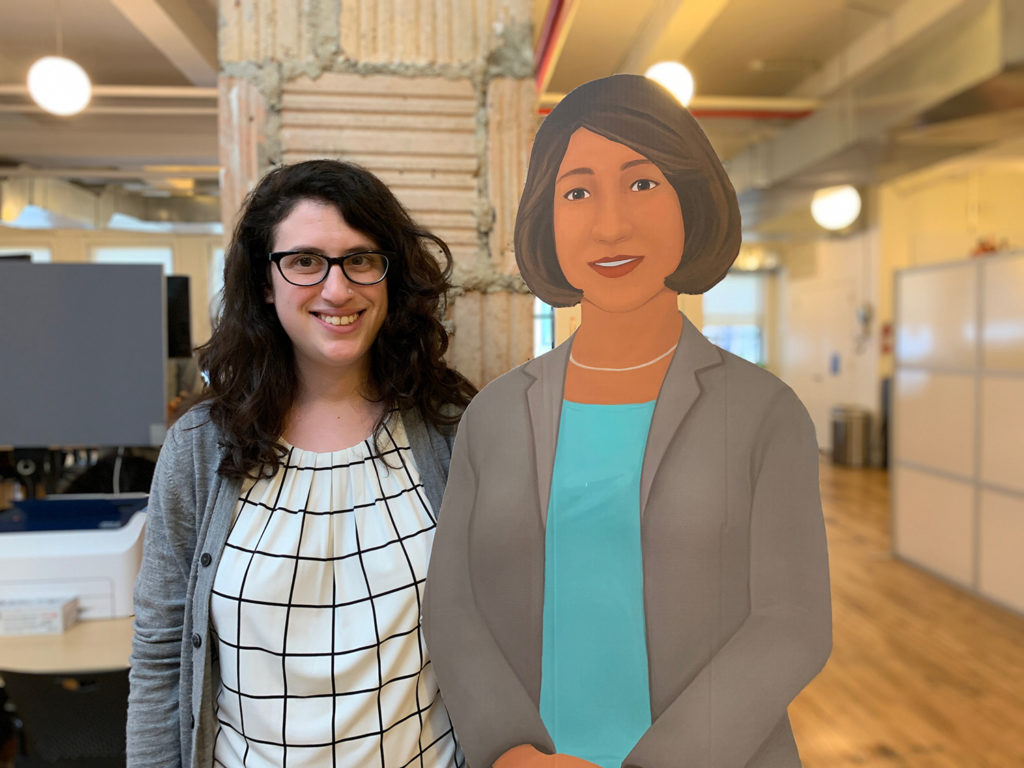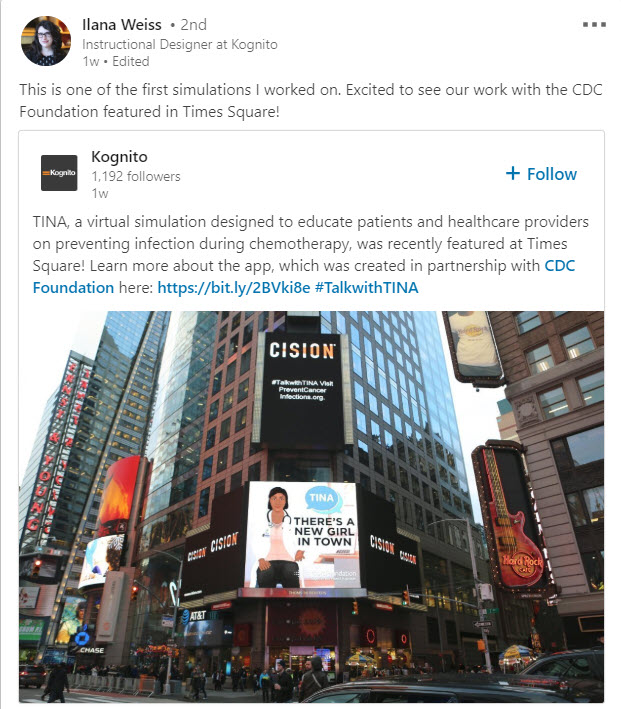Alumna lana Grunberg Weiss’s work gets Times Square billing

Many people only experience computer simulation through games: stepping in as wide receiver for their favorite team in Madden NFL or creating a digital persona in the world of The Sims. But for Ilana Grunberg Weiss ’14, simulations serve a more serious purpose.
As an instructional designer for Kognito, a health simulation company, Weiss worked on a simulation designed to improve patient-provider conversations about neutropenia, a side effect of chemotherapy that may increase infection risk. It launched in November and was featured prominently on a Times Square billboard.

The virtual tool features two simulations: one for providers to practice conversations with cancer patients (Training for Infection and Neutropenia Awareness), and another for patients to have their questions answered (Talking about Infection and Neutropenia Awareness). Naturally, the app is called TINA.
“Our simulations with virtual humans prepare people for real-life conversations,” Weiss says.
Weiss, who earned a master’s degree in technology, innovation, and education from Harvard University in 2017, collaborated with the CDC Foundation to understand the needs of both providers and patients, establishing learning goals and determining the best structure for the conversation.
She credits her time at Clark, where she double-majored in psychology and comparative literature with a minor in German studies, with helping her build the skills necessary for her job. “It is crucial for me to take into account multiple points of view as well as understand cultural contexts,” she says.
Weiss’ faculty advisers were Robert Tobin, professor of comparative literature and German studies, and Nicola Curtin, then an assistant professor of psychology. “They worked closely with me to develop projects that fueled my passion and would be beneficial after my time at Clark,” she says.
Outside the classroom, Weiss volunteered for the Collegiate Success Institute of the Worcester Public Schools. She worked with high school students on the college application process, discussed the college experience, and developed curricula that helped high-schoolers find their own paths.
“This experience gave me the chance to create content for a real-world application and helped me figure out I wanted to work in educational spaces,” says Weiss, who worked as an English language teacher for Fulbright Austria and curriculum coordinator at Bespoke Language School in Kyoto, Japan.
Her Clark classes and peer interactions taught her to articulate her point of view, problem-solve creatively, and appreciate multiple perspectives. “Clark students are passionate,” she says, “and it was great being around people who had so many different interests and were exploring them in different ways.”

